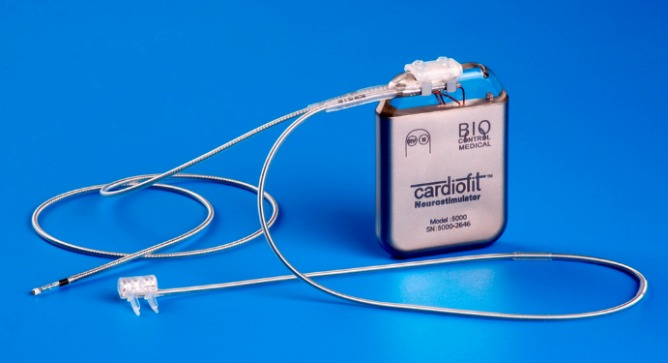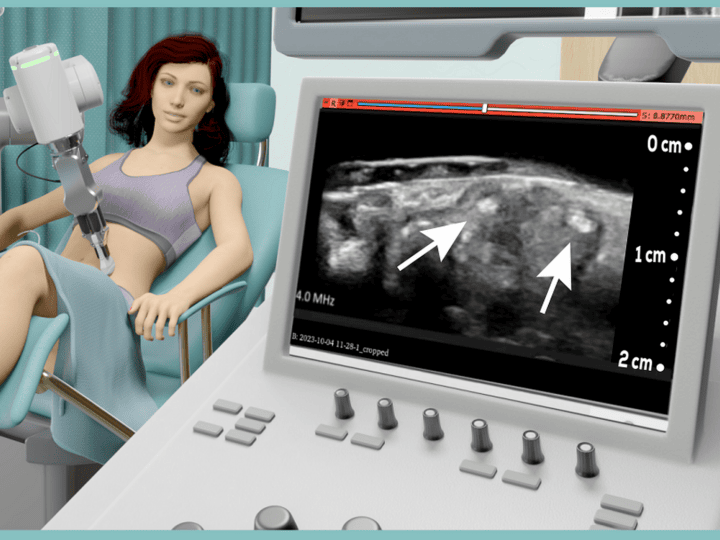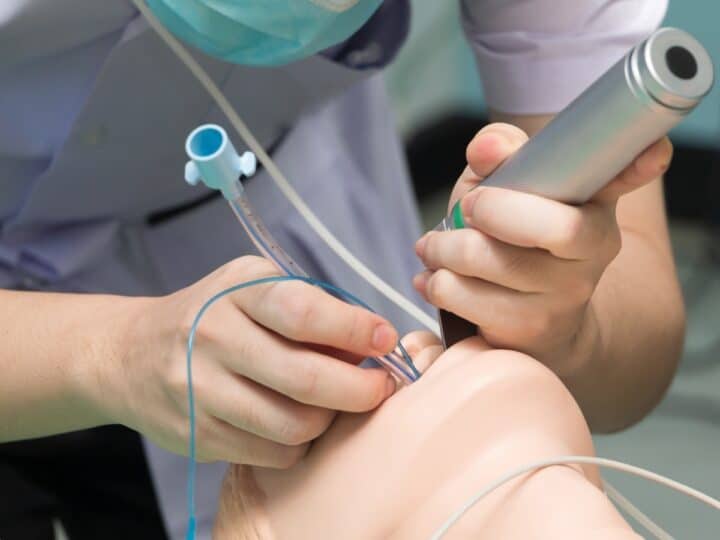It looks like an MP3 player, but the CardioFit device isn’t meant for entertainment. This Israeli innovation from BioControl Medical, now being tested on 200 patients at 50 US medical centers, is an implantable electrical stimulation device designed to improve cardiac function in patients with congestive heart failure (HF).
With heart disease ranked as the world’s top killer, BioControl is looking at a potential market worth $4 billion. The device represents a new and unique source of hope for millions of HF patients.
Spread the Word
• Email this article to friends or colleagues
• Share this article on Facebook or Twitter
• Write about and link to this article on your blog
• Local relevancy? Send this article to your local press
CEO Ehud Cohen explains that CardioFit addresses an imbalance in the autonomic nervous system’s sympathetic and parasympathetic branches, which regulate heart muscle activity.
To envision the way this is supposed to work, he suggests thinking of the sympathetic branch as a car’s gas pedal, and the parasympathetic branch as its brake pedal.
“If the ‘gas pedal’ is making the car go too fast, drugs can treat this — like lifting the foot from the pedal just the right amount,” Cohen tells ISRAEL21c. “But the ‘brake pedal’ cannot be treated, and that is what we do.”
CardioFit stimulates the vagus nerve to activate the parasympathetic nervous system. That, in turn, alleviates HF symptoms and reverses deterioration by triggering healing mechanisms in the heart muscle.
Dr. Gregory Ewald, who is overseeing participants in the study at Washington University School of Medicine in St. Louis, said CardioFit is an entirely new approach for treating congestive heart failure.
“We’ve long known that an early marker of HF is an imbalance in the autonomic nervous system and that this imbalance contributes to HF morbidity and mortality, but we’ve only been able to treat one side of the problem using prescription medications,” Ewald said. “If the study of the CardioFit proves successful, this may be key to understanding how to treat and prevent the progression of HF.”
Already approved in Europe
Fueled by a 2010 investment of $70 million from Medtronic, the world’s largest biotech company, BioControl Medical recently began the second phase of a global, multi-center clinical study of CardioFit to gain US Food and Drug Administration (FDA) approval.
Though the device already won the European CE Mark, getting the FDA okay will require testing on 650 patients, which Cohen estimates will take three more years.
The randomized, controlled safety-and-efficacy study is evaluating the implant’s potential to reduce hospitalization and death among HF patients. Also, it will determine whether combined treatment with CardioFit and prescription drug therapy is more effective than drug therapy alone.
Cohen explains that the device is only the latest application of nerve-stimulation technology that launched BioControl Medical in 1999 by an Israeli team of physicians, scientists and engineers including biotech entrepreneur Yossi Gross. With more than 35 patents under its belt, the company turned its attention to the cardiac field in 2005.
CardioFit consists of a stimulator, a sensor lead and a stimulation lead, which are implanted under the skin of the chest. Once activated, the stimulator’s electrical pulses are transferred via the stimulation lead to the vagus nerve in the neck. The sensor lead monitors changes in heart activity and turns stimulation on or off accordingly.
Like a pacemaker, CardioFit can be programmed remotely through external wireless communication.
In the 32-patient European study leading to CE approval in 2008, the system achieved sustained significant improvement from a clinical point of view, and the participating patients reported a better quality of life.
“The device is approved in Europe but we are waiting for FDA approval to do a worldwide launch,” Cohen says. The company is headquartered in Yehud, Israel, with offices in New Hope, Minnesota.

















